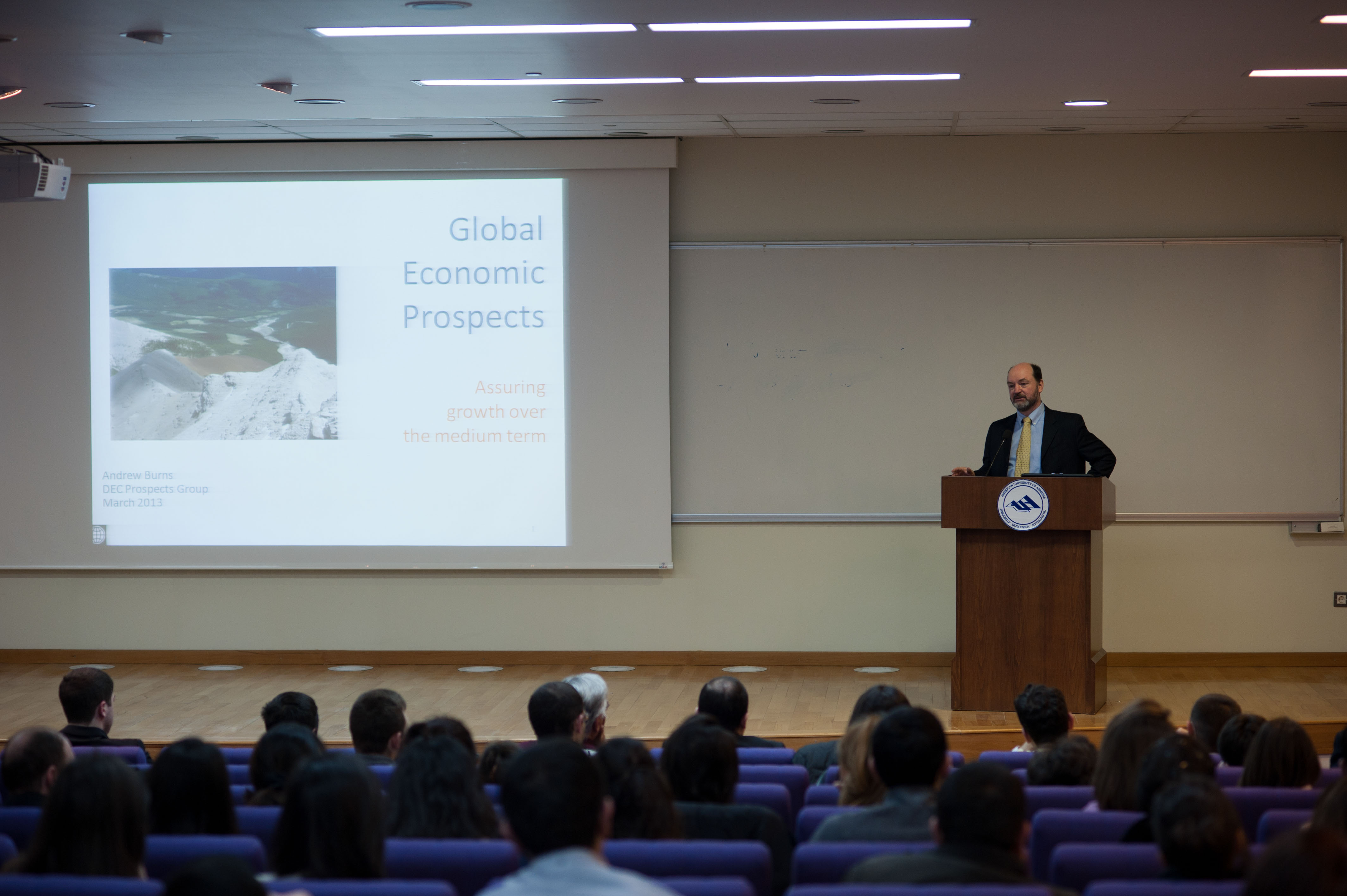
World Bank Expert Discusses Economic Forecast for Armenia in 2013
2 min readYEREVAN–A global macroeconomics expert from the World Bank was at the American University of Armenia (AUA) on Tuesday, March 5, delivering a presentation on Armenia’s prospects for economic growth in 2013.
The public lecture by Andrew Burns, the World Bank’s manager of global macroeconomics at the Development Prospects Group, was organized by the AGBU Papazian Library at AUA as part of a lecture series sponsored by the Knowledge for Development Center at the World Bank-Armenia.
The presentation was based on an analysis published in the latest edition of Global Economic Prospects, a biannual report examining global economic trends and their effects on developing countries.
During the lecture, Burns examined the global economic prospects for ensuring growth over the medium term, both worldwide and in Armenia, pointing out the tendency of countries to focus on short term improvements rather than longer term policy planning.
Burns explained that the global economy is recovering slowly, but that developing countries, Armenia included, are recovering at a relatively faster rate than their high-income counterparts. “Growth in high income countries is going to be at 1.3% in 2013,” Burns projected. “Developing countries have come back from the crisis relatively quickly and are growing faster than high income countries at 5.5%”
Burns, however, made the distinction that the growth seen in developing economies is not necessarily due to external trends, but is rather the result of the local management of these economies. He also noted that Armenia faced a much sharper economic decline during the crisis period and is only now starting to rebound.
Because Armenia’s pre-crisis economy was fairly robust, the effects of the crisis were seen more acutely in Armenia than in other developing nations, he explained. When addressing the necessary steps to re-stimulate the Armenian economy, Burns emphasized the importance of interacting with its neighbors and implementing supply-side policies.
“Armenia is a small country. Armenia is never going to be France or the USA or China, so Armenia has to take a look at what’s going on in Armenia and recognize that if it is going to have success, then it has to sell into the world,” said Burns. “You have to look beyond your borders.”
After the lecture, Burns responded to questions from the audience, addressing issues such as making Armenia more attractive to foreign investment, Armenia’s debt to the International Monetary Fund and the World Bank, and the policies that Armenia should adopt in order to effectively manage the mining sector.
Before joining the World Bank, Burns worked as the Head of Desk for the Czech Republic, Hungary, Poland, and France at the Organization for Economic Co-operation and Development (OECD). He has also worked at the Economic Council of Canada as a writer on labor market and macroeconomic issues. He holds degrees from the University of Manitoba and McGill University in Canada.
The American University of Armenia (AUA) is a private, independent university located in Yerevan, Armenia. Founded in 1991, AUA is affiliated with the University of California. Through teaching, research, and public service, AUA serves Armenia and the region by supplying high-quality, graduate and undergraduate education, encouraging civic engagement, and promoting democratic values.
AUA is accredited by the Accrediting Commission for Senior Colleges and Universities of the Western Association of Schools and Colleges, 985 Atlantic Avenue, #100, Alameda, CA 94501, (510) 748-9001.
AUA provides a global education in Armenia. For news about AUA, visit the university Newsroom or follow developments as they happen on the AUA Facebook Page.

Comments are closed, but trackbacks and pingbacks are open.